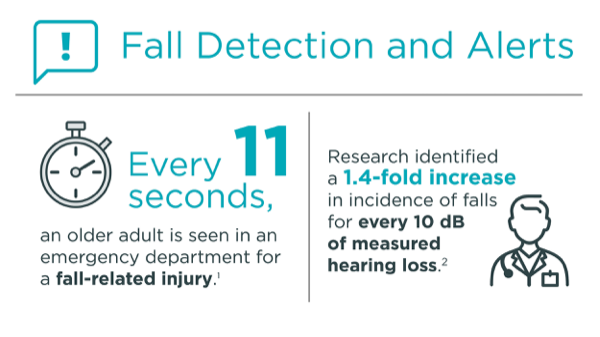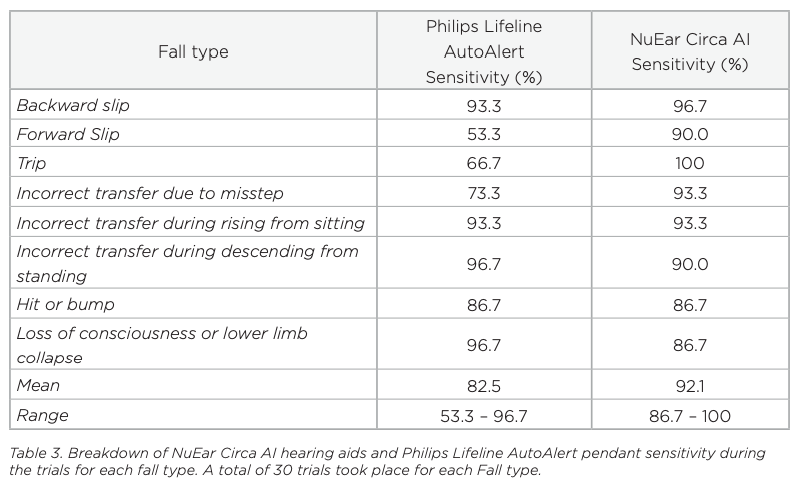Introducing the World’s First Hearing Aid with Fall Detection
We’re excited to introduce a new hearing aid that can help give you and your loved ones peace of mind. Meet Circa AI the world’s first hearing aid with fall Alert. Using integrated sensors, fall Alert can detect falls and send alert messages to selected contacts. Falls are a massive public health problem, particularly for older adults. It’s estimated that injuries due to falls will account for $67.7 billion in public health spending by 2020, and according to the National Council on the Aging (NCOA) falls are currently responsible for an older adult being admitted to a US emergency room every 11 seconds. Additionally, people with hearing loss are particularly susceptible to falls. A Johns Hopkins study suggests that having hearing loss triples the risk of falls for people age 40 and older—and the findings hold up regardless of whether their hearing loss is moderate or severe.

Hear Better, Live Better: Circa AI Detects Falls Accurately and Alerts Others
Accidental falls are a significant health risk for older adults, can often lead to a loss of independence, and frequently shape the course of a person’s later years of life. Previous reports have shown that 40% of individuals who live at home, after reaching the age of 65, will fall at least once each year.

The Circa® AI Healthable™ hearing aid – the world’s first, ear-level fall detection and alerts system – offers peace of mind in a miniaturized and convenient package. Unlike other fall-detection devices, which hang around the neck or are worn on the wrist, Circa AI benefits from the anatomy and physiology of the human body. During typical, daily activities and instance of falls, muscles in the neck work to balance system of the inner ear to protect and stabilize the head. Since hearing aids are worn on the heard, they are naturally less prone to mistake daily activities for falls than the devices worn on other parts of the body. Instead, head-worn fall-detection devices may be tune to capture a greater number of falls, while still having a low number of false alarms.
In a recent study between Circa AI and other fall detection equipment, the Circa AI hearing aids were more accurate at detecting falls than the Philips Lifeline AutoAlert fall-detection pendant. Both systems were robust against false-positive detections during activities of daily living. A summary of sensitivity and specificity across all participants and trails is provided in Table 2. A breakdown of sensitivity rate for each type of Fall is provided in Table 3.


Discussion: Both the Philips Lifeline AutoAlert pendant and NuEar Circa AI hearing aids performed perfectly during the Activities in Daily Living in the present study. The NuEar Circa AI hearing aids produced a slightly higher false-positive rate during trials where the participants began to fall but recovered their balance before reaching the ground. The NuEar Circa AI hearing aids were able to detect more of the falls than the Philips Lifeline AutoAlert pendant and were an overall more accurate fall-detection device than the Philips Lifeline AutoAlert pendant.
Conclusion: NuEar’s Circa AI* hearing aids detected falls as well as or better than the traditional fall detection device studied.